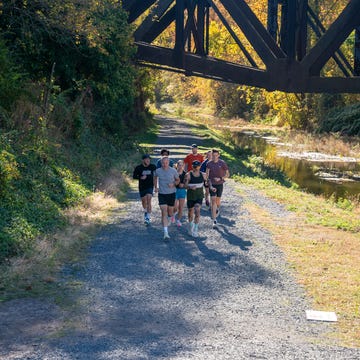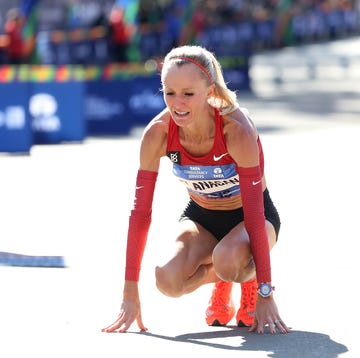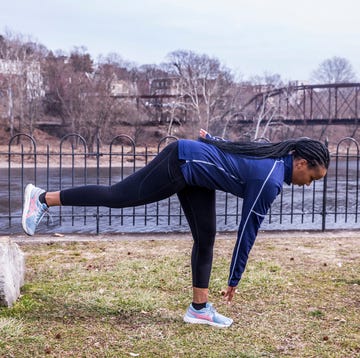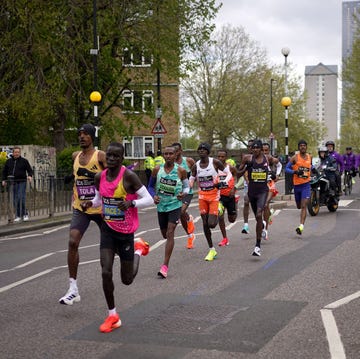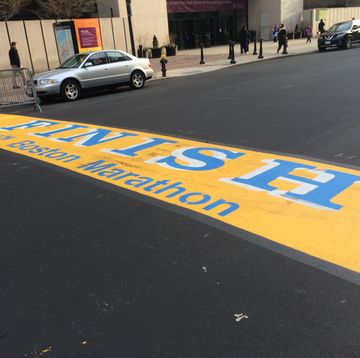Senior Tom Farrell knows how to win on the grass. In his four years at Oklahoma State, he has been part of three NCAA champion cross country teams. In 2009, he redshirted and watched from the sidelines as Ryan Vail, Colby Lowe, John Kosgei, Girma Mecheso and German Fernandez won the Cowboys their first title in 55 years. The next year in Terra Haute, Farrell suited up and finished 29th to help his team earn back-to-back trophies. After a loss to Wisconsin in 2011, Farrell and the Cowboys refocused in 2012, winning back the title in Louisville, where the Carlisle, England, native was ninth overall. This season, as the top returning team-scorer, Farrell is looking to lead the Pokes to their fourth title in five years.
The three-time cross country All-American is not just a selfless harrier, though. He’s a two-time Big 12 champ on the track (2011 indoor 3K and 2011 outdoor 1500m) and owner of the OSU school record in the 5K, with his 13:15.31 effort at Stanford in 2012. Last winter, he was also one of five Cowboys to break the 4-minute barrier in the same season, when he ran 3:58.20 at Arkansas. With any luck this spring, he’ll improve on his school record and mile time and leave OSU for the professional ranks with a couple more titles and All-American awards.
For right now his sights are set on November and helping OSU win its fifth NCAA title in school history. From his home in Stillwater, Farrell talked about juggling NCAA and Euro duties, breaking his dad’s PRs, and just how good challenger Northern Arizona University could be this fall.
Running Times: How did the 2013 track season wrap up? After failing to advance out of the NCAA west preliminary were you looking for a little redemption in Europe this summer?
Tom Farrell: The 2013 track season was bittersweet. Obviously it was a massive disappointment not to make it to Eugene for the NCAA championships, but after my 5K in Austin at Regionals, I had only raced three times outdoors and I didn’t want my season to be so short. Originally Dave [OSU coach Dave Smith] and I had not planned to race in Europe. Early in the year we decided that we would get the NCAA season done with, then if things were looking really good we would think about Europe. As it happens, we didn’t get to the end of the NCAA season, and things weren’t looking that particularly good. But we decided that it would be nice to go to Europe and race a couple of times anyhow. It also was nice to spend some time at home training with my friends and seeing all my family. The European season did end up finishing nicely as I was second in the 5K at U23s [The Under-23 European Track and Field Championships in Tampere, Finland]. That seemed like a nice time to wrap up the season, take a good solid two weeks of down time and recoup for the NCAA cross country season.
RT: As a UK native, how do you balance the NCAA season with the desire to race in Europe and represent your country?
TF: It isn’t easy. When I moved out here four years ago, I committed to OSU and the NCAA system. The NCAA seasons come first, and anything in Europe that is viable for me to race and worthwhile I will consider only once the NCAA season is done. That’s why my races in Europe over the last four years have been few and far between. Representing my country is an honor and always will be; I take pride in the opportunity to wear the Great Britain vest, but sometimes the timing is not right. Like with the world cross country last year, I would have loved to run for Great Britain, but for me to fly home and race the trials and then fly out to Poland would have affected my indoor and outdoor seasons in the NCAA; it was an easy decision taking priorities into account.
RT: You hear a lot of different accents and languages around the OSU locker room. Why do think OSU has turned into such an international squad? Does it make it easier for you, as an Englishman, to settle into rural Oklahoma?
TF: It’s great to have diversity on the team; having athletes and friends from countries around the world allows you to learn a lot about different cultures. We all have the same objective, to come to OSU, graduate with a degree and represent the bright orange vest with pride. I wouldn’t necessarily say it makes it easier, but at the same time it doesn’t make it harder. We have an extremely family-like team here, both the men’s and women’s programs are all close friends and we all get along great. So whether you’re moving to Stillwater from a small town in Oklahoma, across the country from one of the coasts, or half way across the world everyone, is accepted the same.
RT: Although you own the OSU school record in the 5,000, 13:15.31, you’ve had more national-meet success on the grass (29th, 31st, and ninth) than on the track. Why do you think this is?
TF: I would say my limited success on the track looks worse from the outside than it really is. The first year I made the NCAA meet in the 5000m was an overwhelming experience, but one that I took a lot of lessons from. The next year, Dave and I decided to redshirt in order to give me the best shot of making the Olympics. That’s when I ran my 13:15 [at Stanford’s Payton Jordan Cardinal Invitational]. Obviously this past year was an error on the progression chart, but you can’t keep improving year on year out without any hiccups.
RT: People have marked OSU as a cross country powerhouse, but in 2013 you were one of five Cowboys to run a sub-4-minute mile during the indoor season. [The others were Kirubel Erassa, Shane Moskowitz, Raul Botezan and Fabian Clarkson.] How do you go from 10K-grass ready to mile sharp in only a few months?
TF: In all honesty, none of us were that sharp. There wasn’t any big change in training. We base a lot of our year around strength work and so between the end of cross country and the beginning of indoor, we really only start to incorporate turnover work into our schedule maybe once a week. Some 200s at mile race-pace is about the extent of the speed-work we had done before that race in Arkansas. Also, that mile race was our opener, and if you look at the splits, we couldn’t have ran it any other way for a group of strength-based guys coming off a great cross county season. Even splits all the way.
RT: You have great range, from 1500m (3:41.07 PR) to 5,000m (13:15.31 PR) to cross country (top returning team-scorer). What distance do you enjoy most or think you have the best knack for? Also, you've mentioned before that your dad [David Farrell] was a steepler [Border Harriers and Athletics Club]. Have you thought about running his old event?
TF: I don’t like to think that I have a specialized distance. I feel like I’m early in my career and still relatively young. I like to keep an open mind to which distances I race and prefer. I would say I lean towards the 5,000 but I still love the 1500. I have unfinished business in the 1500 and would like to lower my PB before I start focusing on the longer distances. Which of the longer distances it will be I don’t know yet. I have always been open to the idea of the steeple; it’s just hard to fit one in, as our race schedule doesn’t really have an opportunity for a “fun” race to attempt a steeple. I certainly need to run at least one in my career though as I need to break Dad’s PB [9:02]. I also need to run a two-mile [8:40], a 10-mile [49:57] and an 800 [1:53], just to run quicker than Dad. That way I can cement myself atop the Farrell family record books. But by the time I’ve done those races I’m sure he’ll have pulled some more obscure distances from up his sleeve to claim he is still up on me!
RT: Health - Injuries?
TF: The season is shaping up to be another exciting one. There are some great teams in the NCAA this year and I’m sure it will be another great race in Terre Haute. The team is in a great place right now. Everyone is running extremely well in workouts and we’re all enjoying each other’s company on runs. We are following the same plan as we have in the past and everything is on schedule. The brand new track [OSU recently constructed a $10 million facility] makes it all the more enjoyable.
RT: Talk a little bit about the maturation of OSU cross country. You guys have gone from “also qualified” to perennial powerhouse in pretty short order. What have you seen change in Stillwater over your tenure?
TF: When I arrived into Stillwater in 2009, we were a cross country team trying to break into and upset the cross country powerhouses and win a NCAA title. Now I would say that we have certified ourselves as a cross country program and people will always consider us when it comes to the team championship at NCAAs. It was an amazing experience to train with guys like Ryan Vail, Colby Lowe and German Fernandez throughout the season and then be in Terre Haute to watch them win their first title [2009]. It certainly inspired me to be part of a national title team myself. I never thought I’d be so lucky and get to be on two [2010 and 2012].
There has been a big change in our mentality over the short period of time I have been here. Guys now come into the program wanting to emulate the upperclassmen and other great athletes who have been through the program, guys like Vail, German and Colby. When freshmen and transfers arrive with that attitude, and they see how hard the older guys are working, how many miles we are running, and how focused we all are, they quickly learn what it takes to be part of a national winning team in November.
RT: There are only a few other teams that look like they have what it takes to win in November. One is NAU, ranked second behind you guys in the most recent coaches’ poll. They’re also set to race you at the Cowboy Jamboree, Sept. 28. Coach Smith usually likes to pack up and run conservative early in the season, but does this change with another title contender in your backyard?
TF: No. Each of our races in the lead up to nationals have a different emphasis. Each one increases with intensity and importance. I’m sure it will be an exciting race, but we will execute the race plan that Dave wants us to, and if it means we win, then it is a bonus. Obviously we want to win, and so does NAU, but whichever team wins at the Cowboy Jamboree doesn’t necessarily get to take the NCAA trophy home in November.
RT: True. Are you guys going to win a fourth title in five years?
TF: It sure would be nice. There’s a lot of time between now and Nov. 23, and an awful lot can happen in between. Last year, NAU was ranked 17th in the preseason polls and went on to finish fourth at the championship. You can’t just focus on the teams ranked in the top 10 or the top five, because come November, there will always be some big changes. I’m sure that it will be a great race this year between some very good teams, and the team that gets seven healthy guys to Terre Haute and executes well on that day will walk away with a well deserved trophy. We can’t focus on a certain few teams this early in the season; right now we have to focus on getting the training done and ticking all the right boxes for us to stay healthy and be firing on all cylinders in November.
RT: Looking ahead to your final indoor and outdoor track seasons, what are your goals? What would you like to get done before you leave Oklahoma State?
TF: I only have an outdoor season left eligibility wise. I haven’t thought much about anything past Christmas right now. The NCAA cross country season is my priority and once we’re done with that I will start to decide on goals for the coming outdoor season. I do know that picking up an All-American spot on the track will certainly be on the list of goals, but past that, I couldn’t get much more specific.
RT: Do you have plans to run professionally? Are you looking at any particular groups (domestic or abroad) or would you like to stay on with Coach Smith?
TF: Running professionally is a dream of mine. I’m considering groups on both sides of the Atlantic; I have to keep my options open and where I end up being based is completely up in the air right now. Also staying on to be coached by Dave will always be an option of mine. Obviously he doesn’t have a post-collegiate group right now, but if it became a serious option it is certainly something I would think very hard about. Without Dave’s belief in me as a high school senior and his desire to have me be part of such a great program, I wouldn’t be in the place I am now, and I doubt I would have ran so quick.



